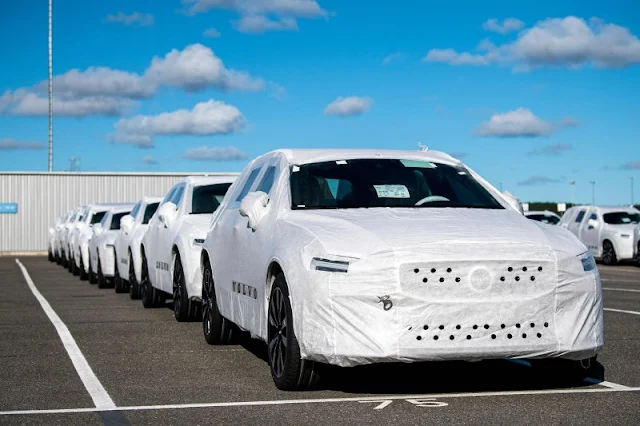Global Automakers Reluctant to Halt Internal Combustion Engine and Hybrid Vehicle Production
 |
| Major Car Manufacturers Focus on Hybrid and ICE Vehicles Amid EV Market Challenges / AFP |
In a landscape increasingly dominated by electric vehicles (EVs), global automotive manufacturers are finding it challenging to phase out internal combustion engine (ICE) and hybrid vehicles. Instead, many are doubling down on their production, striving to capitalize on the profitability of these models while the transition to full electrification faces hurdles.
Recent reports indicate that established car manufacturers are not only investing in the development of next-generation electric and hybrid vehicles but are also forced to extend the lifecycle of existing ICE technology longer than previously anticipated. Companies such as General Motors (GM), Porsche, BMW, and Mercedes-Benz are actively launching EVs while simultaneously increasing their investments in ICE and hybrid vehicle segments.
According to S&P Global Mobility, the number of new ICE and hybrid models set to debut this year is projected to increase by 9% compared to last year. Specifically, while the production of ICE vehicles is expected to drop to 205 models, the hybrid segment is anticipated to surge by 43%, resulting in approximately 116 new hybrid offerings. This significant rise in hybrid vehicle production aligns with consumer preferences for models that combine traditional engines with electric capabilities, appealing to environmentally conscious drivers seeking to reduce emissions.
As the European Union (EU) mandates a 15% reduction in overall emissions from car manufacturers compared to 2021 levels, and with plans to ban the sale of new gasoline and diesel vehicles by 2035, automakers are under pressure to adapt. Nevertheless, companies like BMW are advocating for more lenient regulations, while brands such as Mercedes-Benz, Volvo, and Renault have adjusted their performance targets in response to stringent emission laws and concerns about global tariff conflicts. These manufacturers are increasingly relying on ICE and hybrid vehicle sales as they navigate these complexities.
While EV sales are rapidly growing in China, the market in Europe is experiencing a slowdown, largely due to elevated battery costs that inflate production expenses, thus limiting profit margins for EVs. Luca de Meo, CEO of Renault, has expressed skepticism about the widespread adoption of EV technology in Europe, suggesting it could take two decades before electric models become the industry standard. He emphasized that the pace of ICE vehicle development will not be slowed as a result.
Mercedes-Benz has recently unveiled plans to introduce 19 new ICE models and 17 electric models between now and 2027. CEO Ola Källenius has stated that if electric vehicles fail to dominate the market by 2030, it would be imprudent to reduce the production of profitable ICE vehicles.
In light of dwindling demand for EVs, Porsche has begun reevaluating its electric sales strategy after a 49% decrease in sales of its electric model, the Taycan, last year. The brand has allocated €800 million toward the development of new gasoline and hybrid models. GM CFO Paul Jacobson has indicated that the company expects the profitability from ICE vehicle sales to remain a viable scenario for the foreseeable future.
As automakers strive to navigate the evolving market landscape, they are balancing their investments across electric, hybrid, and ICE vehicles. This strategy reflects their adaptability in responding to consumer demand and regulatory requirements, ensuring they remain competitive as the automotive industry continues to transition toward electrification.


댓글
댓글 쓰기